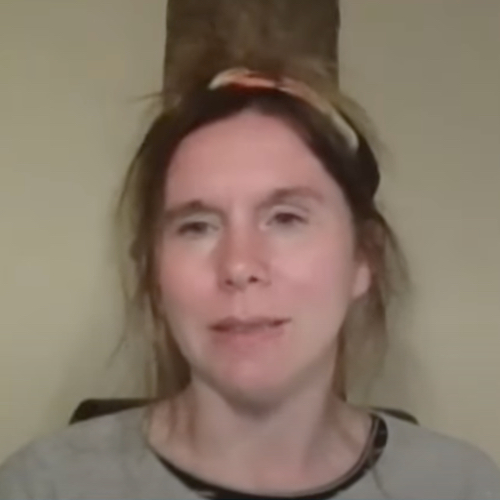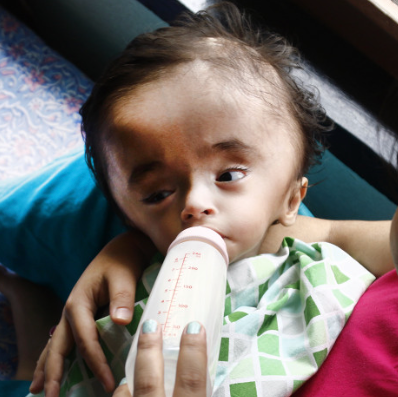Upon entering a large teaching hospital for surgery one hot summer morning, I expected to go home the next day, to rest and recover before going back to work the following week. Unfortunately, fate had a different plan for me. My surgeons unknowingly damaged my bowel and everything changed. I woke up in agony late that night when my small intestine burst open in two places. Everyone thought I would die, but somehow I survived multiple medical errors. I have no memory of pain, or the events of the next three weeks.
As daybreak arrived, I was still in acute pain, while residents were writing orders for me to eat breakfast and be discharged. While I was slowly dying, no one was coordinating my care or supervising the new doctors that morning. It took about forty hours before anyone realized how sick I was.
After I was finally rushed to emergency surgery, things got worse, when a student nurse anesthetist incorrectly placed a breathing tube down my throat causing me to aspirate. A gallon of barium dye infiltrated my lungs. In addition to the infection I had from my leaking bowel, I developed raging new infections, including sepsis.
After more surgeries and weeks in a coma, I finally regained consciousness. Still psychotic from the drugs, I vowed to write a book after I figured out what had happened. As a child, I was curious about everything, always asking questions. As a patient, nurse, and nursing professor who taught medical ethics, I knew my perspective would be unique. Because the hospital would not tell me anything, it took eight years to discover the truth and write my memoir.
After five surgeries and a month in the hospital, I finally went home with a large hole in my abdomen, hooked up to a draining machine for two more months. I had no idea how to put my life back together. Unable to move, bathe, dress, or prepare food, my initial recovery focused on regaining enough strength to walk and attend to my usual daily activities. Fourteen months later, I had to undergo a major repair surgery to put my abdomen back together.
During the years it took to write my book, I was amazed to learn how unsafe hospitals can be. Even though I had trained, worked, and taught students in hospitals, I had never realized all the dangers patients face. For example, I had no idea how many patients die from healthcare-associated infections (HAIs) each year in hospitals. In 2014, the HAI Prevalence Survey published findings showing there were approximately 722,000 HAIs in acute care hospitals in 2011 in the USA; and these infections caused the deaths of 75,000 patients during their hospitalizations. https://www.cdc.gov/hai/data/index.html
I was shocked to learn that medical errors is not included on the annual list of major death causes compiled by the Centers for Disease Control and Prevention (CDC). Why? Because the CDC creates its annual list based on information from death certificates, which are filled out by physicians (and others), who use the International Classification of Disease (ICD) code for each cause of death – and there are no ICD codes for human and system factors. When hospital patients die from preventable errors and adverse events, their deaths are not linked to the real causes of their demise, such as misdiagnosis; unnecessary tests, treatments, and procedures; medication errors; immobility and preventable falls; infections from central lines, catheters, surgeries, and ventilators; skin breakdown (bed sores); blood clots; uncoordinated care; missed warning signs (vital signs and pain); poor or absent communication; pharmacy and lab mistakes.
In the hospital where I almost died, I suffered from: inadequate care from inexperienced doctors; lack of knowledge and uncoordinated care; deadly infections and unsafe practice; poor critical-thinking skills; poor or scant communication; and staff who saw me as an object instead of a suffering human being.
While heart disease and cancer are the two leading causes of death in this country, between 250,000 and 500,000 patients die every year from medical errors, making medical errors the third leading cause of death in the USA. Unfortunately, it is currently impossible to get a more accurate estimate, since many hospitals (and physicians) do not disclose errors. A problem not acknowledged is a problem that cannot be studied or resolved. Many patients get worse, or die, without knowing what went wrong.
As I struggled to rebuild my life, I yearned to know why I had almost died in a hospital. The more I learned, the stronger my moral courage grew within me. I was incredulous that the hospital had told me nothing, not one word – as though I did not exist, and had never been a patient there for a month. As I learned the pieces to my story, I wrote my book to help others understand how one failed moment in surgery, for example, can cause unquantifiable suffering and enduring hardship, for patients and their loved ones.
People who know my story often ask me what can be done to prevent medical errors. I say there is little one individual can do. Vulnerable patients cannot diagnose themselves, prescribe correct medications, observe their surgeries, coordinate their own care, or disclose errors when things go wrong. However, healthcare systems and insurance companies can evolve to value patient safety more than profit. Hospitals can operate with transparency so that errors can be identified, understood, and minimized. Everyone who uses health care can become their own change agents.
We need to understand more about medical errors and how so many people die from them. We need to ask lots of questions, especially when we (or people we love) enter a hospital. We need to know more about the informed consent we sign before surgery. We need to maintain current advance directives (living will and health care power of attorney). We need to get second opinions. We need to know which medications we are given. We need to have someone with us at all times (if possible) to be our advocate and witness.
Medical errors are ubiquitous. For the medical paradigm to change, those who work in health care – including hospital administrators, risk managers, attorneys, insurance companies, physicians, and nurses – must summon the integrity and courage to put patients first – before ego and money – and stop denying or covering up medical errors. We consumers of health care must become better critical thinkers and more proactive about our bodies. We must stop trusting blindly that everything is as it should be. We must not wait for corporate profiteers to change their goals. We need to become our own consumer advocates and protectors. Now.
As I struggled to rebuild my life, I yearned to know why I had almost died in a hospital. The more I learned, the stronger my moral courage grew within me. I was incredulous that the hospital had told me nothing, not one word – as though I did not exist, and had never been a patient there for a month. As I learned the pieces to my story, I wrote my book to help others understand how one failed moment in surgery, for example, can cause unquantifiable suffering and enduring hardship, for patients and their loved ones: ANATOMY OF MEDICAL ERRORS: THE PATIENT IN ROOM 2, by Donna Helen Crisp, JD, MSN, RN, PMHCNS-BC.







